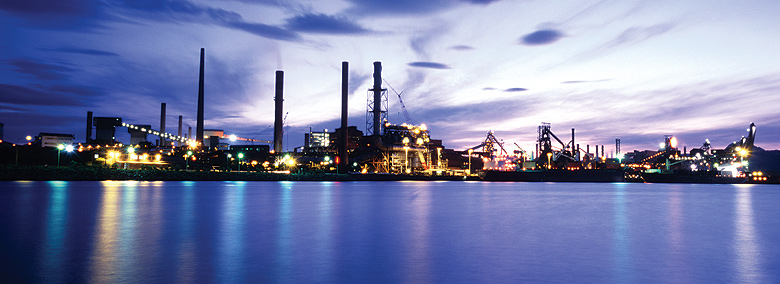Every year, the International Monetary Fund (IMF) sends a group of economists to Australia to survey the domestic economy, comment on the effects of government policy and make some suggestions as to what might best be done in the coming year. It is known as an тАЬarticle IV consultationтАЭ.
The IMF executive boardтАЩs latest report was publicly released in early October. After commending AustraliaтАЩs economic performance during the past two decades, the report noted some challenges ahead. Chief among them is the prospect of тАЬslow growthтАЭ in the coming year.
John Rainford
The United Nations Climate Change Conference will take place in Paris between November 30 and December 11. By the time it starts, 2015 is almost certain to have beaten last year as the warmest year ever.
This August has now been confirmed as the hottest August since records began in 1880. Other months this year that broke records were February, March, May, June and July.
The NSW government owns about 277,400 properties. Their combined commercial worth, according to finance minister Dominic Perrottet is $60 billion.
Most of the property is commercial, built up over many decades by successive Labor and Coalition governments, and financed by NSW taxpayers, on behalf of whom the present NSW government holds them in trust.
But the Mike Baird government doesnтАЩt get this тАЬholding in trustтАЭ thing. They believe the assets are theirs to sell; and this is precisely what Perrottet intends to do.
The historian Geoffrey Blainey recently addressed staff at BHP headquarters in Melbourne on the 130th anniversary of the forming of Broken Hill Propriety Company Limited in 1885.
Blainey told the assembled audience тАЬthere is no commercial institution in Australia that has contributed so much to the nationтАЩs historyтАЭ.
To set the historical record straight, he should have added that there is no commercial institution that has fought so hard against the workers whose surplus value it expropriated than BHP.
The cycle path known as the Iron Curtain Trail follows the boundary that separated east from west during the cold war period from 1947 to 1989. The 7650 kilometre route that stretches from north of Turkey to the Barents Sea, 400 kilometres inside the Arctic Circle, is not for the faint-hearted.
But such is the desperation of Syrian refugees that up to 20 people a month are using the route to get to the safety of the Norwegian town of Kirkenes on the Russian-Norwegian border. Here they make a formal request for asylum and are then flown to the capital Oslo for further processing.
From 1954 to 1972, AustraliaтАЩs official unemployment rate was under 2% as the economy grew at the most rapid rate in the countryтАЩs history. There was one exception, the credit squeeze year of 1961, in which unemployment rose to 2.4%.
Whatever else he might be, John Dyson Heydon is no fool. When he accepted the job of royal commissioner inquiring into trade union governance and corruption, he knew what was expected of him.
The commission was set up as a political witch-hunt into unions, designed to give the federal Coalition government an issue with which it thought it could win the next election. Heydon was happy to oblige and has been handsomely paid for doing so.
 BlueScope Steel announced a on August 24. This is an improvement on last yearтАЩs loss of $83 million, but not by much compared to past profits.
The results were released on the day the Australian share market suffered its worst fall since the global financial crisis, yet BlueScopeтАЩs share price went up by almost 9%.
BlueScope Steel announced a on August 24. This is an improvement on last yearтАЩs loss of $83 million, but not by much compared to past profits.
The results were released on the day the Australian share market suffered its worst fall since the global financial crisis, yet BlueScopeтАЩs share price went up by almost 9%.
Dyson Heydon will not step down as commissioner investigating corruption in trade unions, having decided to ignore the widespread perception of his political bias.
Whatever else he might be, Heydon is no fool. When he accepted the job as royal commissioner he knew what was expected of him.
The commission was set up as a political witch-hunt into unions, designed to give the Coalition government an issue which it thought it could win the next election with.
Heydon was happy to oblige and has been handsomely paid for doing so.
The one thing neoliberal touts want us to forget is that the effects of the Global Financial Crisis of 2008 have never been overcome тАУ and are still felt today.
There is no such thing as everlasting тАЬnatural growthтАЭ in the world economy. As John Maynard Keynes long ago pointed out, capitalism тАЬseems capable of remaining in a chronic condition of sub-normal activity for a considerable period without any marked tendency towards recovery or complete collapseтАЭ.
Despite the overwhelming evidence, the federal government does not believe that climate change is real. The Climate Council recommended a reduction of 45% to 65% of AustraliaтАЩs 2005 carbon emission levels as the minimum that would be required to prevent runaway climate change.
 Tianjin residents protest, August 20.
Capitalism with Chinese characteristics is in some strife. This is largely because the governmentтАЩs attempt to keep growth at an unsustainable 7% a year is fuelled by equally unsustainable debt.
Corporate and local government debt has grown by 50% since 2009, and total debt, which includes household debt, is now close to 187% of GDP.
Tianjin residents protest, August 20.
Capitalism with Chinese characteristics is in some strife. This is largely because the governmentтАЩs attempt to keep growth at an unsustainable 7% a year is fuelled by equally unsustainable debt.
Corporate and local government debt has grown by 50% since 2009, and total debt, which includes household debt, is now close to 187% of GDP.
- Previous page
- Page 2
- Next page









